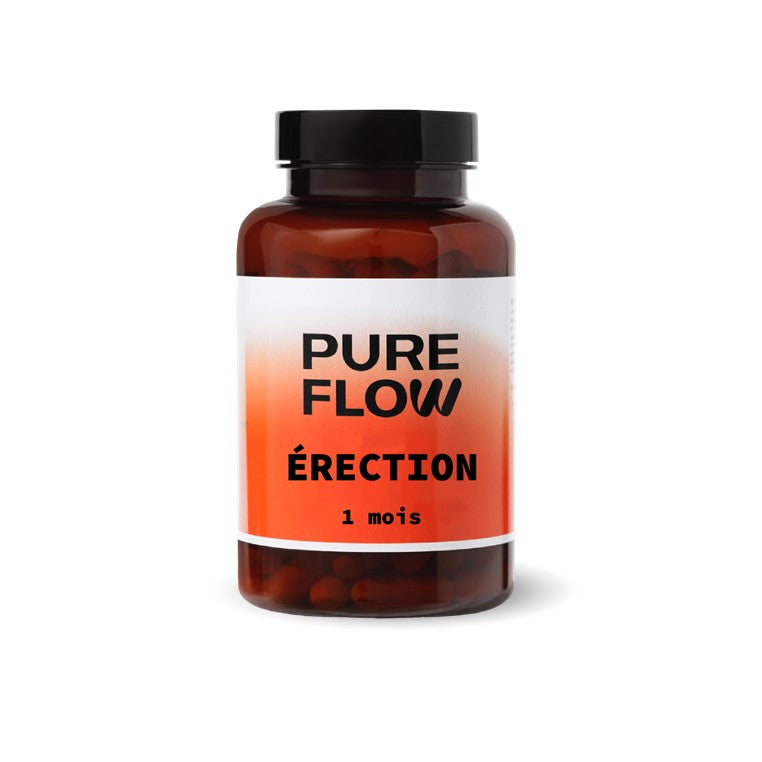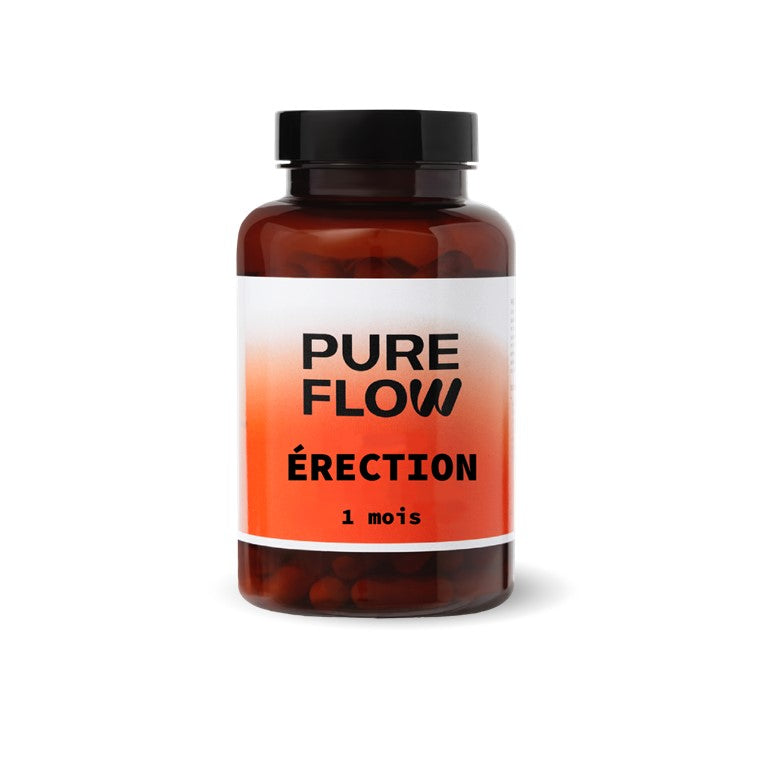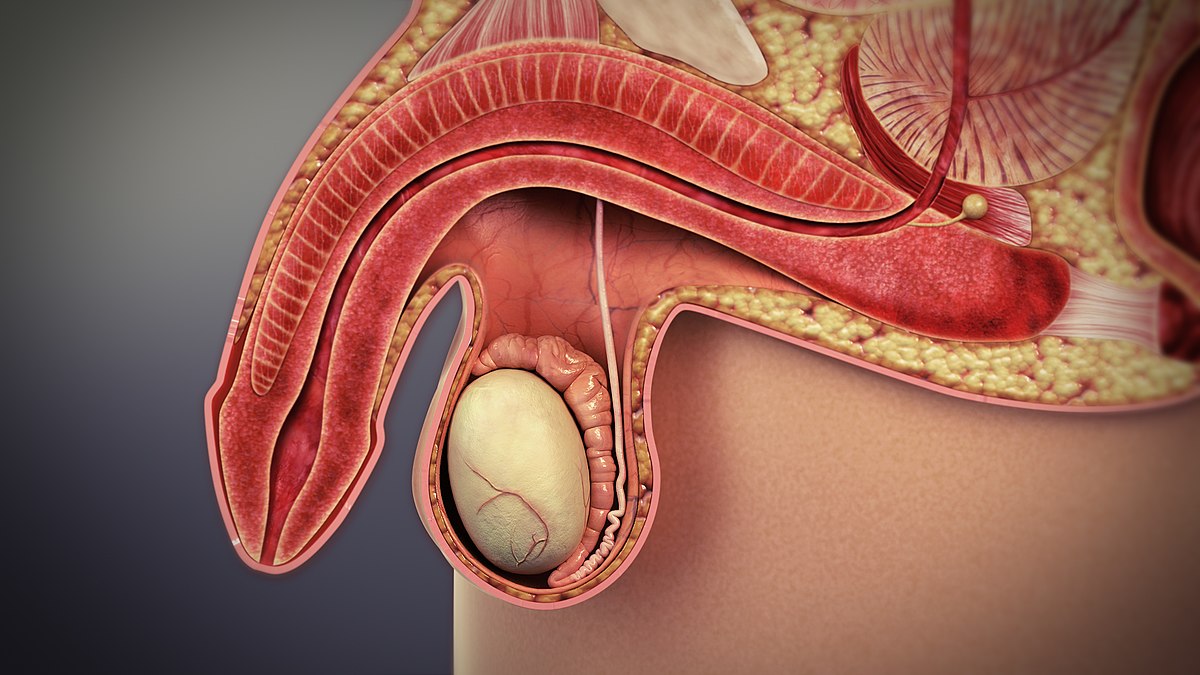Introduction
Erectile dysfunction , often referred to as impotence , is a complex disorder affecting the sexual health of men. It involves difficulty obtaining or maintaining an erection satisfactory for sexual activity . This phenomenon has significant repercussions on quality of life, being influenced by physiological and psychological factors.
Definition and Symptoms of Erectile Dysfunction
Erectile dysfunction is characterized by a recurrent inability to obtain or maintain an erection adequate for sexual intercourse. Symptoms vary, from occasional erection problems to a complete inability to achieve an erection . Contrary to popular belief, ED is not an inevitable consequence of aging, although its prevalence increases with age. Risk factors include cardiovascular disease , diabetes , hypertension and smoking.

Erectile Dysfunction: Causes
Physiological Causes
- Vascular disorders: Problems in the blood vessels, such as atherosclerosis (narrowing of the arteries) can limit blood flow to the penis.
- Neurological problems: Disorders affecting the nervous system, such as Parkinson 's disease, multiple sclerosis , or spinal cord injury.
- Diabetes: Can damage nerves and blood vessels, affecting the ability to achieve an erection.
- Hormonal issues: Hormonal imbalances, such as low testosterone levels.
- Chronic medical conditions: Such as kidney failure or liver cirrhosis.
- Medication Side Effects: Many medications, including some antidepressants, antihypertensives, and prostate medications, can influence erectile function.
- Surgeries or injuries: Affecting the pelvic region or spinal cord.
- Structural problems of the penis: Like Peyronie's disease .
- Lifestyle and risk factors: Obesity, smoking, alcoholism and substance abuse can contribute to ED.
- Cardiovascular Disease: High blood pressure and heart disease can affect blood flow.
Psychological Causes
- Stress and anxiety: Including stress related to work, finances or relationships.
- Depression: May reduce interest in sex and contribute to ED.
- Relationship problems: Difficulties with a partner, lack of communication or other relationship problems.
- Performance Anxiety: The fear of not succeeding sexually can become a self-fulfilling prophecy.
- Psychological trauma: Negative past experiences or abuse may play a role.
The Consequences on Quality of Life
Erectile dysfunction (ED) has a profound impact on the quality of life of men who suffer from it. Beyond physical difficulties, it can lead to a significant deterioration in self-esteem and confidence, affecting not only personal image but also the dynamics of intimate relationships. Partners may feel frustration, confusion, or even guilt, which can lead to tension and conflict in the relationship.

Diagnosis and Assessment
The process of diagnosing and evaluating erectile dysfunction (ED) is a crucial step in understanding and effectively treating this condition. During a medical consultation dedicated to ED, several key aspects are examined in depth.
- Patient's medical and sexual history: The doctor inquires about the patient's complete medical history. This includes looking for chronic conditions, such as diabetes or cardiovascular disorders, that may influence erectile function. The patient's sexual history is also crucial, helping to determine whether erectile problems are recent or have been occurring for a long time, as well as their impact on the patient's sexual and relationship life.
- Physical Exams: A physical exam can reveal clues about the cause of ED. For example, abnormalities in the genitourinary system, signs of hormonal disorders, or vascular problems may be detected during this examination.
- Hormonal analyses: Hormonal measurements, particularly testosterone levels, are often performed. Hormonal imbalance can affect libido and erectile function, and correcting it can improve ED symptoms.
- Vascular and neurological tests: These tests help evaluate the condition of blood vessels and nerves involved in erection. Abnormalities in these systems may be the underlying cause of ED. For example, a Doppler ultrasound test can be used to assess blood flow in the penis, while neurological tests can check the integrity of the nerves.
- Other tests: Depending on the case, other tests may be needed, such as blood tests to check glucose levels, lipid profile, or liver and kidney function. These tests help detect possible health problems that could be contributing to ED.
- Psychological evaluation: Since psychological factors, such as stress, anxiety, or depression, may play a role in ED, a psychological evaluation may be recommended. This may involve discussions about relationship problems, past sexual experiences, and the patient's general mental state.
Erectile Dysfunction: Treatments
Drug Treatments
Phosphodiesterase type 5 inhibitors, such as Viagra and Cialis , play a crucial role in the treatment of erectile dysfunction. They work by increasing blood flow to the penis, making it easier to achieve and maintain an erection during sexual stimulation.
However, they are not without side effects and are not suitable for all patients, especially those with certain pre-existing medical conditions. It is therefore essential that their use is supervised by a healthcare professional who will assess their suitability for each individual.
Natural Treatments
Natural dietary supplements play a growing role in the management of sexual health problems, including erectile dysfunction (ED). Among them, Tribulus Terrestris and Rhodiola Rosea stand out for their potential to improve erectile function and overall sexual health . Tribulus Terrestris , known for its stimulating effects on testosterone production , can contribute to a significant improvement in libido and sexual performance. Its vasodilator properties help increase blood flow to the penis , thus facilitating erection. On the other hand, Rhodiola Rosea , known for its adaptogenic abilities, helps the body adapt to stress, a factor often linked to ED. By reducing fatigue and improving mental and physical stamina, Rhodiola may indirectly promote better erectile function . These supplements, by targeting different facets of sexual health, offer a holistic and natural approach to treating erectile dysfunction, while promoting overall well-being. However, it is essential to consult a healthcare professional before integrating them into your routine, to ensure their safety and suitability for your situation.
Surgical Approaches
If drug treatments for erectile dysfunction fail, surgical options such as vascular surgery and penile implants may be considered. These interventions directly target underlying physiological issues, providing alternative solutions for restoring erectile function.
Alternative Therapies
Behavioral therapies, psychotherapy and lifestyle changes are also effective solutions, alone or in addition to medical treatments.

Prevention and Recommendations
Preventing erectile dysfunction (ED) is based on adopting a healthy lifestyle that positively influences sexual health. Here are detailed recommendations for preventing ED:
- Balanced Diet : A healthy diet plays a crucial role in preventing ED. Eating foods rich in vitamins, minerals and antioxidants promotes blood flow and vascular health, two key factors in maintaining a healthy erection. It is recommended to include fruits, vegetables, whole grains and lean proteins in your diet.
- Regular Physical Activity : Regular exercise improves blood circulation, strengthens the heart and increases endurance, helping to reduce the risk of ED. Exercises such as brisk walking, jogging, cycling, or swimming, done at least 30 minutes a day, can be particularly beneficial.
- Reduction in Alcohol and Tobacco Consumption : Smoking and excessive alcohol consumption are two major risk factors for ED. Tobacco can damage blood vessels and restrict blood flow to the penis, while alcohol can inhibit erectile reflexes and sexual response. Reducing or stopping the use of these substances can greatly improve sexual health.
- Stress Management and Mental Health : Stress and mental health issues like anxiety and depression can contribute to ED. Practicing stress management techniques, such as meditation, yoga, or deep breathing exercises, can help. Seeing a mental health professional can also be beneficial in addressing underlying issues.
- General Health Monitoring : Medical conditions like diabetes, hypertension, cardiovascular disease, and hormonal imbalances can lead to ED. It is important to see a doctor regularly for screening and proper management of these conditions.
- Avoiding Harmful Medications : Some medications can have side effects that include ED. Talking with a healthcare professional about current medications and their potential alternatives can help reduce this risk.
Future Prospects in Treatment
Future advances in the treatment of erectile dysfunction (ED) are promising, marked by significant innovations in medical research. The focus is on the development of gene therapies and new pharmacological molecules, aiming to offer more effective and personalized solutions for individuals suffering from ED.
Conclusion
Erectile dysfunction (ED), a condition impacting the ability to obtain or maintain an erection, affects many men and is not an age-related inevitability. Its origins are diverse, ranging from physiological causes such as vascular, neurological, hormonal problems, or side effects of medications, to psychological causes such as stress, depression, and performance anxiety.
The consequences of ED are significant, influencing self-esteem, relationships and quality of life. Diagnosis requires a thorough medical evaluation to determine the underlying cause. Treatments vary depending on the nature of the problem. Medications like Viagra and Cialis are commonly prescribed, but are not suitable for everyone and should be used under medical supervision. If drug treatments fail, surgical interventions such as vascular surgery and penile implants are possible.









